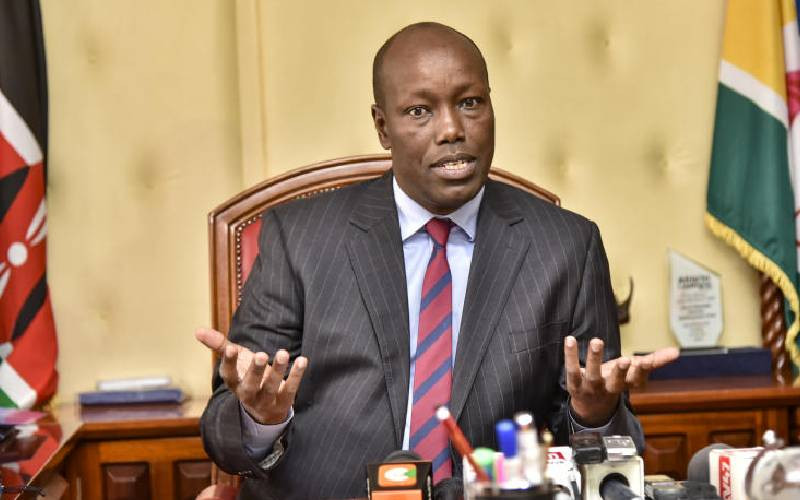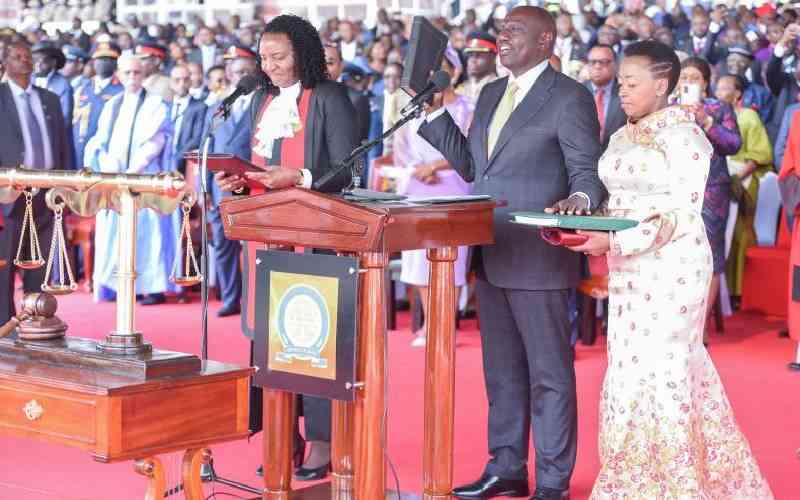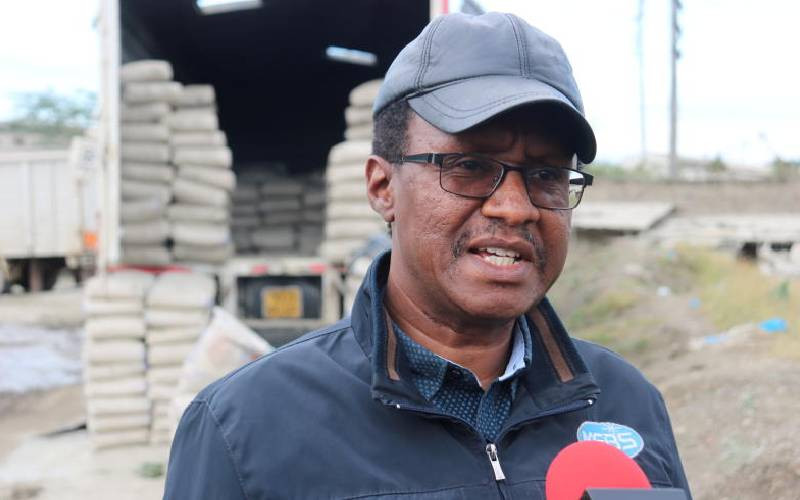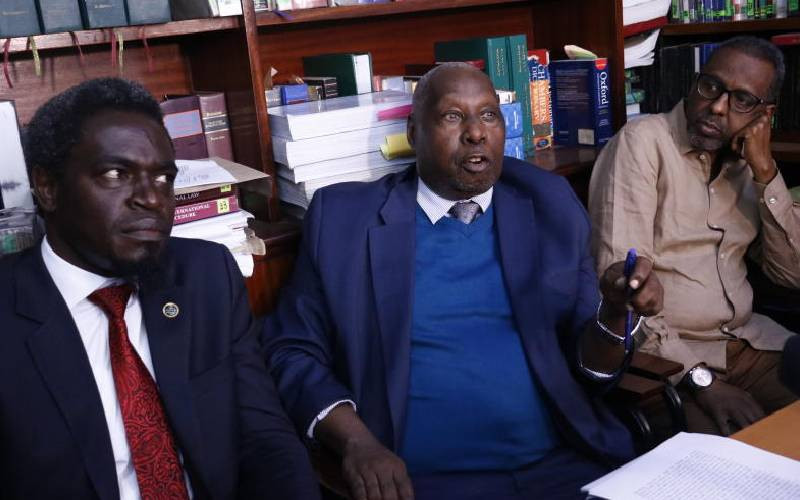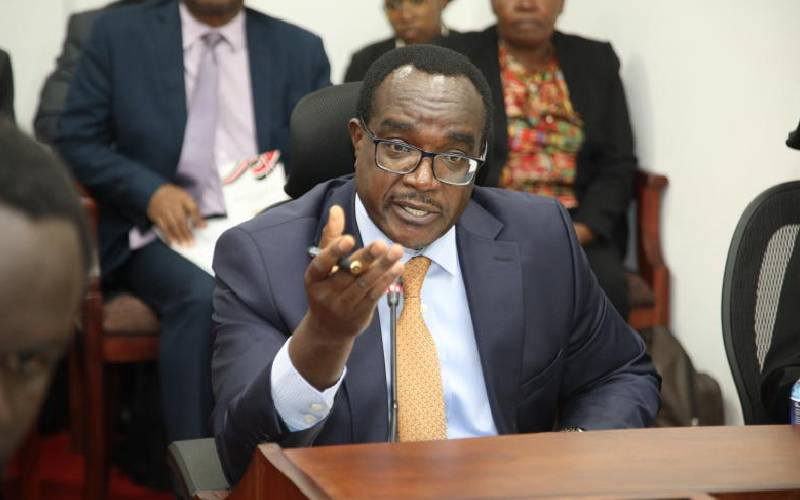
Consumers and manufacturers will have to wait longer to learn the fate of their electricity bills following the controversial Sh95 billion power transmission deal signed with Adani Energy Solutions Ltd, an Indian company owned by billionaire Gautam Adani.
The deal, announced last week, allows Adani to develop, finance, construct, operate, and maintain critical transmission lines and substations across Kenya.
It is expected that the money invested would be recouped through higher electricity taiffs.
Ketraco’s Managing Director John Mativo said in an interview with The Standard that the tariff cannot be finalised until ongoing negotiations regarding the Annual Revenue Requirement (ARR) are completed.
ARR is the total revenue that must be realised through the annual revenue collection to cover the cost associated with the project, and is a key determinant that the country’s energy regulator the Energy Petroleum Regulatory Authority, will consider in determining the final tariff.
A statement published by Ketraco in a paid-up advertisement yesterday showed the project will have an ARR of about Sh21 billion.
It is expected therefore that EPRA will approve a new tariff based on this.
Analysts predict that at Sh21 billion, this will make Adani’s transmission tariff more expensive than any power plant tariff currently in operation, meaning power is set to be costlier.
Reduced costs
Ketraco, however, said it negotiated on the reduction of the total project cost from an initial $1014 million (Sh130 billion).
By the end of negotiations, Ketraco says Adani Energy revised its offer to $736 million (Sh95 billion).
This resulted in a reduction of costs by $278 million representing a reduction by 27 per cent, says Ketraco.
“The cost reductions have led to ARR reduction from $231 million to $164 million (Sh21 billion) lower ARR representing a reduction by approximately 29 per cent.”
Ketraco also revealed that Adani is expected to liaise and negotiate with international development finance institutions for cost of debt at single digit interest rates, which will then be recouped through the tariffs charged to power consumers.
It was not immediately clear yesterday how this financial clause protects consumers in the event the Adani entity does not succeed in securing cheaper debt as hoped by Ketraco.
This is as the power company maintained the cost of the project and the debt raised will be recouped from Kenyans over time.
“EPC cost and cost of debt will be treated as pass through costs and the private party shall have no direct gains on this,” said Ketraco.
“The private party is expected to enhance efficiency and effectiveness during construction period to further reduce EPC costs.”
Despite government assurances, the deal has faced scrutiny due to Adani’s controversial business practices and a perceived lack of transparency regarding financial details.
Critics argue that the government should consider alternative options that may yield greater benefits for the country.
Diminished earnings
But Energy Cabinet Secretary Opiyo Wandayi has dismissed concerns surrounding the deal, emphasising its goal of alleviating persistent power blackouts and enhancing national electricity infrastructure.
Wandayi disclosed that the project would be funded through a mix of debt and equity, to be repaid over a 30-year period. However, it remains unclear whether this debt will result in increased electricity prices.
A study by the Kenya Institute for Public Policy Research (KIPPRA) indicates that higher energy prices can diminish household welfare by forcing families to allocate a larger share of their budgets to meet energy needs. As a result, households with higher energy expenditures have less income available for other basic goods and services.
“Electricity consumer bills have been a concern for years, with new higher tariffs burdening consumers, households, and industrial users,” KIPPRA noted.
“High energy costs are a barrier to economic growth and development. Since electricity is essential for producing most goods and services, higher prices directly and indirectly impact costs across all sectors.”
Wheeling charges are intended to compensate entities that own and maintain the transmission infrastructure for their network’s use. This cost will ultimately be passed on to end customers in the form of higher electricity prices.
Earlier, Wandayi stated that the estimated project cost of Sh95.68 billion ($736 million) would be solidified through a competitive bidding process overseen by Ketraco and the Project Company, ensuring value for money for the country.
“Kenyans are well aware of the significant challenges our country faces with persistent power blackouts. These projects are designed to significantly enhance our national electricity infrastructure, ensuring reliable and widespread access to power that will support Kenya’s growing economy and development goals,” Wandayi remarked.
The escalating cost of electricity in Kenya, driven by factors such as rising fuel prices, currency depreciation and tariff adjustments, has severely affected household disposable income.
Many families are now forced to reduce essential spending on food and healthcare. There are growing fears that soaring electricity prices following the Adani deal may render energy unaffordable for low-income households, leading to energy poverty, exacerbating inequality and hindering socio-economic development.
EPRA sets tariffs for residential and commercial consumers and determines prices for generated electricity.
The previous base electricity tariff was approved in 2018, but in April 2023, rates were adjusted to Sh26.10 and Sh31.75 for the domestic category, resulting in a 19 per cent increase in power bills.
The pass-through costs include additional charges incurred by electricity generation plants, such as the fuel energy charge, foreign exchange rate fluctuation adjustment (FERFA), Water Resource Management Authority levy, and inflation adjustments.
The FERFA fluctuates based on project loan repayments, while the inflation adjustment is reviewed every six months to protect the utility company from inflationary pressures.
Other approved components comprise EPRA Levy, a five per cent levy passed to for the Rural Electrification Programme and 16 per cent VAT.
 The Standard Group Plc is a multi-media organization with investments in media platforms spanning newspaper print
operations, television, radio broadcasting, digital and online services. The Standard Group is recognized as a
leading multi-media house in Kenya with a key influence in matters of national and international interest.
The Standard Group Plc is a multi-media organization with investments in media platforms spanning newspaper print
operations, television, radio broadcasting, digital and online services. The Standard Group is recognized as a
leading multi-media house in Kenya with a key influence in matters of national and international interest.

